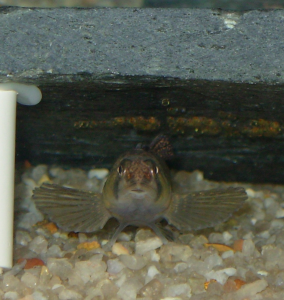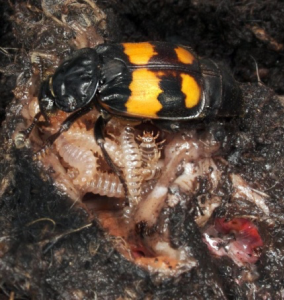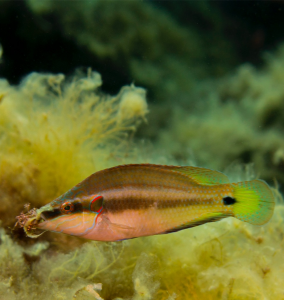The Coevolution of Mating and Parental Care



We use theory and data to understand how multiple male and female traits coevolve and ask what role social interactions play in these dynamics. Our research is increasingly focused on predicting how plasticity in response to social interactions affects trait evolution and asking how and when such social plasticity is expected to arise. This theory predicts that considering how interactions within and between the sexes affect simultaneously affect selection improves our ability to explain and predict observed patterns of mating and parental care. Our empirical work on the complex and sometimes puzzling patterns of mate choice and paternal care in the ocellated wrasse has also shown that social interactions within and between the sexes drive observed patterns.
Want to know more? See the papers below (or a complete list HERE)
Griffin AS, Alonzo SH, Cornwallis CK. 2013. Why do cuckolded males provide paternal care? PLoS Biology 11(3): e1001520 (http://dx.doi.org/10.1371/journal.pbio.1001520)
Alonzo SH. 2012. Sexual selection favours male parental care, when females can choose. Proceedings of the Royal Society B 279(1734): 1784–1790 (http://dx.doi.org/10.1098/rspb.2011.2237)
*Highlighted in Price TA, Hosken DJ. Evolution: Why good dads win. Current Biology 22(4): R135-R137** (http://dx.doi.org/10.1016/j.cub.2012.01.020)*
Kindsvater HK*, Bonsall MB, Alonzo SH. 2011. Survival costs of reproduction predict age-dependent variation in maternal investment. Journal of Evolutionary Biology 24(10): 2230–2240 (http://dx.doi.org/10.1111/j.1420-9101.2011.02351.x)
Alonzo SH, Heckman KL+. 2010. The unexpected but understandable dynamics of mating, paternity and paternal care in the ocellated wrasse. Proceedings of the Royal Society B 277(1678): 115-122 (http://dx.doi.org/10.1098/rspb.2009.1425)
Stiver KA+, Alonzo SH. 2009. Parental and mating effort: Is there necessarily a trade-off? Ethology 115(12): 1101-1126 (http://dx.doi.org/10.1111/j.1439-0310.2009.01707.x)